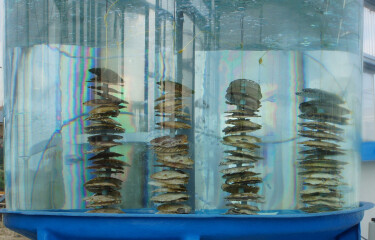Tokyo, Japan-based General Oyster Corporation has developed an innovative purification system that aims to eliminate instances of vibrio and norovirus in its products on a mass scale, as instances of both have resulted in recent recalls and general wariness among consumers.
Consumer anxiety around the safety of oysters is particularly prevalent in Japan, where diners rarely eat oysters raw due to the country’s warm, subtropical waters that can lead to higher instances of vibrio and norovirus. Instead, oysters are often cooked in a hotpot or are served fried and breaded.
General Oyster – a pioneer of raw oyster bars in Japan – is on a mission to change Japanese perceptions around consuming the mollusk.
The company opened its first outlet in 2001 and is now the country’s largest operator of oyster bars; however, several incidents of norovirus that made headlines in Japan in 2006 caused reputational damage to raw oyster bars and have resulted in companies like General Oyster needing to get creative to combat those impressions.
That ingenuity has resulted in the development of a unique method of purifying oysters to avoid instances of vibrio and norovirus.
Conventionally, oysters go through a process known as depuration that involves the mollusks being held in tanks of filtered, purified water at facilities for up to 20 hours. This allows oysters to get rid of most of their harmful bacteria before they end up on the market. The process, though, is not guaranteed to eliminate instances of harmful bacteria or viruses.
What General Oysters does differently is that it purifies its oysters in ...
Photo courtesy of General Oyster Corporation








